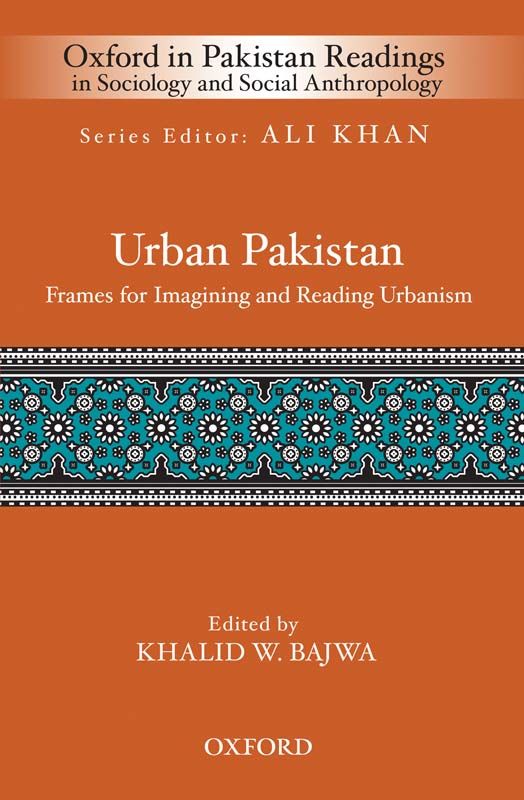-
- E-Books
- Anthropology
- Art & Architecture
- Biographies / Memoirs / Letters
- Business, Economics, and Finance
- Ecology / Environmental Studies
- Education
- Mathematics, Engineering and Technology
- English Language
- English Literature
- Exploration / Travel
- History
- International Affairs
- Islamic Studies
- Language
- Law
- Media Studies
- Medicine
- Music / Performing Arts
- Pakistan Studies
- Philosophy
- Politics
- Psychology
- Sociology
- Strategic Studies
- Urdu Literature
- Women’s Studies
Urban Pakistan
Frames for Imagining and Reading Urbanism
There is a noticeable absence of compiled works on Pakistani Urbanism. Urban Pakistan not only seeks to fill this gap but also selectively attempts to update the state of the art and thus sets the platform for further works. It provides an essential resource for the fields of urban studies, sociology, anthropology, history, analysis, design, planning, management, and policy. This book epitomises the search for a valid position on Urbanism within the context of the enigmatic development of the cities of Pakistan, both big and small. It seeks to unravel the confusion emanating from unfulfilled planning ambitions for over six decades now. While it is an attempt to present urban environments as layered precipitates of civilisation, they are discussed as instrumentalities and support infrastructures of cultural practices. Urban Pakistan synthesises important but dispersed writings and their associated bibliographies, and identifies gaps that are patched by new works. It is a resource which will enable deeper investigations and will be of value to academics and researchers in these fields. The writings are arranged under four frames—1: Enterprise and Invention, 2: Space and Everyday, 3: Image and Culture, 4: Identity and Politics—in order to demonstrate their overall significance and also outline the issues surrounding each frame.
Author Description
Ali Khan holds an MPhil and a PhD in Social Anthropology from the University of Cambridge, England. He is presently Associate Professor of Anthropology and Department Chair at the Department of Humanities and Social Sciences at the Lahore University of Management Sciences (LUMS). He teaches courses on the anthropology of development, qualitative research methods, child and bonded labour, and on ritual and belief systems. He has previously worked in Washington and in Islamabad for the World Bank's South Asia region primarily on labour issues, particularly child and forced labour. Prior to joining the Bank, he worked with the International Labour Office and with UNICEF. Ali Khan’s book Representing Children: Power, Policy and the Discourse on Child Labour in the Football Manufacturing Industry of Pakistan was published in 2007 by Oxford University Press. He is also the General Editor for the OUP series of books on Sociology and Anthropology in Pakistan. He is currently involved in a socio-cultural evaluation of cricket in Pakistan and on a social history of the Pakistani film industry.
Khalid W. Bajwa is Professor and Department Head at the Department of Architecture and Design, COMSATS Institute of Information Technology (CIIT), Lahore, Pakistan. Earlier, he served as Associate Professor at the School of Architecture, Beaconhouse National University, Lahore. He teaches courses on architectural design, urban design, design research, and on urbanism and modernity in architecture. His area of expertise is ‘research by design’. He explores ‘scale and memory’, ‘tissue and typology’, and ‘density and liveability’ in search of heuristics for spatial constellations by inventing designs that conceptualise objective and composed development in relation to its overall image, structure, and functioning. His research initiatives focus on: indigenous modernity, urbanistic themes, design legacies, and studio pedagogy and didactics. He graduated in architecture from the University of Engineering and Technology, Pakistan, and completed his post-graduation in urban design and planning and doctorate in architecture and urban design from the University of Leuven, Belgium.
| ISBN | 9780199063376 |
|---|---|
| Weight in kg | 0.820 |
| Rights | World |
| Year of Publication | 2013 |
| Binding | Hardback |
| Pages | 550 |
.













